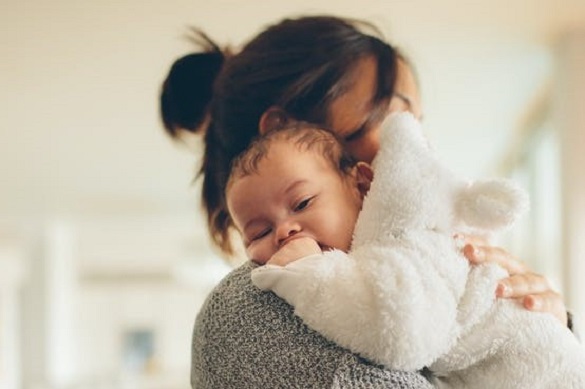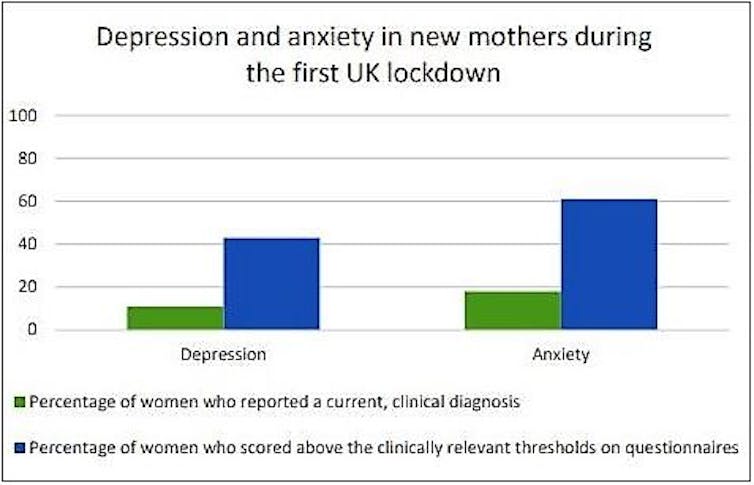
Credit: Shutterstock
This article by Vicky Fallon, Lecturer in Health Psychology at the University of Liverpool, Sergio A. Silverio, King's College London and Siân Macleod Davies, Liverpool John Moores University was first published by 'The Conversation'.
New mothers experienced worryingly high rates of depression and anxiety during the first lockdown, our new research has revealed. One of the major contributing factors to them feeling this way was the psychological impact of social distancing measures.
Our study examined the psychological and social experiences of over 600 women with babies between birth and 12 weeks old during the first UK lockdown.
We wanted to understand prevalence rates of "clinically relevant" maternal depression and anxiety. By clinically relevant, we mean mothers who scored above a certain threshold on questionnaires normally used by clinicians when they assess and diagnose mental health conditions.
Usual rates of depression and anxiety after birth in the UK are around 15%. Our survey found similar rates, with 11% of women reporting they already had a current clinical diagnosis of depression and 18% reporting an existing clinical diagnosis of anxiety. However, when we explored this further we actually found that a much higher proportion were experiencing depression and anxiety - they just did not have a formal clinical diagnosis yet.
This was revealed when we examined how many of the mothers scored above the clinical threshold on the mental health questionnaires they completed. The findings were deeply concerning. We found that 43% of the women met the criteria for clinically relevant depression and 61% met the criteria for anxiety.

Author provided
This means that over a third of the women who met the criteria for depression and anxiety did not report having a current clinical diagnosis.
We also asked mothers whether they felt their feelings or relationships had been affected by the introduction of social distancing measures. Our analysis found that the perceived psychological impact of social distancing was the main contributing factor influencing feelings of depression and anxiety.






